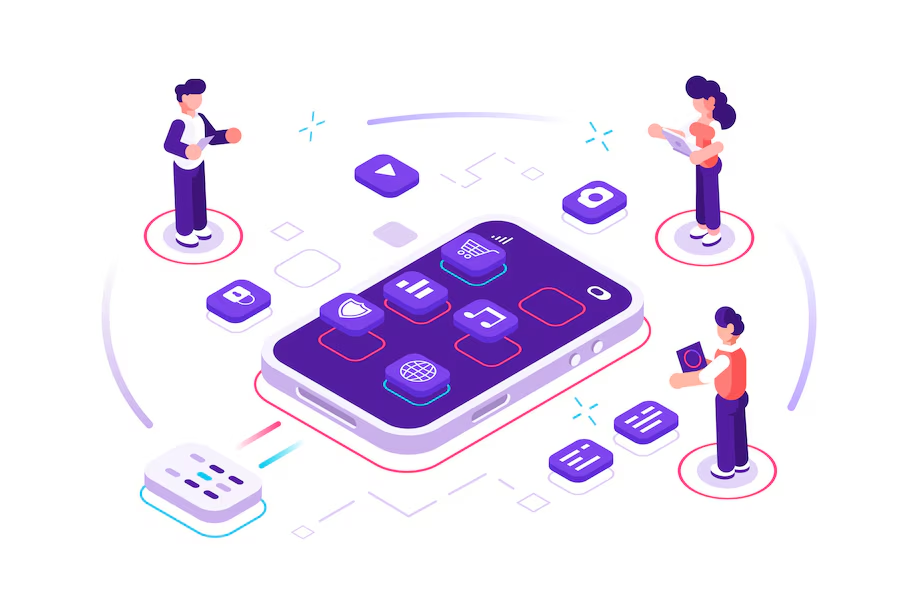The healthcare software development industry is rapidly growing, and with the advent of new technologies, the industry is set to revolutionize the way healthcare is delivered. With custom software development and new mobile app architectures being worked upon in the healthcare software industry, there are various developments that one should be aware of that will shape the future. This guide will explore the latest trends and developments in the healthcare software development industry for 2023.
Trends In Healthcare Software Development
Let’s dive deeper into the various trends of healthcare software development.
Telemedicine
Telemedicine is one of the most significant trends in healthcare software development. With the COVID-19 pandemic, telemedicine has become even more important as it allows patients to receive medical care remotely. This technology will continue to grow in popularity as it offers convenience and accessibility to patients and healthcare providers alike.
It also helps reduce costs, improve patient outcomes, and enhance communication between providers and patients. Telemedicine can include video conferencing, remote monitoring, electronic prescribing, remote diagnosis, and other services. It can be used for both primary and specialist care, as well as follow-up care. Telemedicine also helps improve access to custom healthcare solutions for those in rural areas who otherwise may not have access to medical care. Additionally, it can help reduce wait times for appointments, reduce time spent in waiting rooms, and offer patients more flexibility in scheduling appointments. With telemedicine, providers can offer better patient education and engagement, leading to improved health outcomes.
Artificial Intelligence (AI) and Machine Learning (ML)
AI and ML are being used to improve the accuracy and speed of diagnoses and predict patient outcomes. This technology is also being used to improve patient engagement through virtual assistants and chatbots. ML and AI allow medical professionals to quickly analyze large datasets to detect patterns and correlations that can inform better decision-making. AI and ML can be used to identify potential health risks, predict the need for interventions before they happen, and manage chronic diseases. AI and ML can also help to streamline administrative and clinical processes, such as streamlining the ordering process and improving the accuracy of medical records. In addition, AI and ML can provide personalized care recommendations, track patient outcomes, and provide virtual support to patients.
Cloud Computing
Cloud computing allows for storing and sharing large amounts of medical data, making it easily accessible to healthcare providers. This technology is also being used to improve healthcare systems’ scalability and security, allowing for greater custom medical solutions. It allows for the rapid deployment of new applications and services, eliminating the need for large upfront investments in hardware and software. It also enables healthcare providers to access data from anywhere, anytime, thus improving efficiency and patient care. Additionally, cloud computing can help reduce operational costs, eliminating the need for expensive hardware and software maintenance. Finally, cloud computing can help healthcare providers save time and resources by enabling them to collaborate and share data through secure and reliable networks.
Interoperability
Interoperability is the ability of different systems to communicate and share data. This technology is crucial in healthcare as it allows for the seamless sharing of patient information between different healthcare providers. This allows for better coordination of care and better overall patient outcomes. Interoperability also helps to reduce costs by eliminating the need for duplicate data entry, thus reducing administrative burden. Additionally, it can improve population health by providing real-time data to healthcare professionals, aiding in making more informed decisions.
Blockchain
Blockchain technology is being used to improve the security and privacy of patient data. It also allows for the creation of secure and decentralized healthcare systems. It can be used to securely store and share patient records, providing quicker access to medical history and reducing the possibility of data breaches. Additionally, blockchain technology can be used for medical research, to verify the authenticity of medical products, and to ensure secure payments in the healthcare sector. Additionally, blockchain technology can improve healthcare services’ efficiency, such as streamlining the process of medical billing and insurance claims.
Internet of Things (IoT)
IoT technology is used to improve patient monitoring and collect data for research purposes. It involves using connected devices (sensors, cameras, etc.) to collect data from various sources, including patient, environmental, and medical data. This data can then inform decisions about healthcare delivery and research. The IoT has the potential to revolutionize healthcare, providing real-time data and insights that can be used to improve patient care and outcomes. For example, it can detect changes in a patient’s condition, alert clinicians of any changes, and even allow for remote monitoring of a patient’s health status. It can also be used to collect data for research purposes, allowing for more efficient data collection and analysis. Additionally, it can detect and alert clinicians of potential problems, allowing for quick intervention.
Conclusion
In conclusion, the healthcare software development industry is set to experience significant growth in 2023. Telemedicine, AI and ML, cloud computing, interoperability, blockchain, and IoT are the key trends expected to shape healthcare’s future. As technology evolves, healthcare software development companies will play a vital role in improving patient outcomes and making healthcare more accessible to all. The role of software in health care is growing, and if you want to be a part of this journey without considerable hassle, then Golpik has got you covered! Drop us a message to learn more about our fitness app development services, medical software development, and long-term app maintenance solutions!






